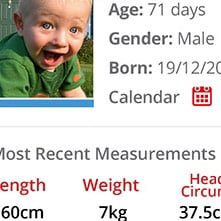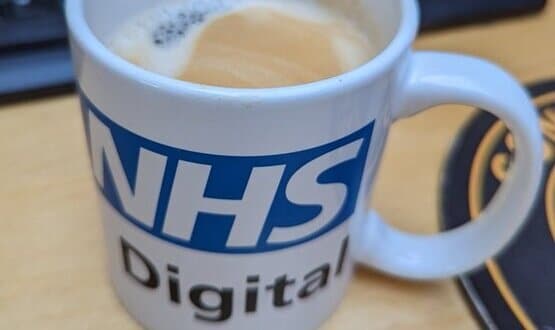Royal College backs eRedbook
- 11 November 2014

The Royal College of Paediatrics and Child Health has endorsed the digital version of the ‘red book’ that is given to parents and carers at a child’s birth.
In a statement on its website, the RCPCH said it had spent two years working with the NHS and the companies developing the eRedbook, which it also calls the ‘personal child health record’ or PCHR.
It is now confident that the product complies with standards for an electronic personal health record that it has published.
Dr David Low, the chair of the college’s informatics for quality committee, told EHI: “This is an important move that brings the red book into a 21st Century way of working.
“It provides a mechanism to improve parent and children engagement, because it allows them to co-manage, with health professionals, their care and the recommendations of the health child programme.”
The eRedbook has been developed by two companies, Sitekit Apps and Harlow Printing (which prints the paper red book), working with a clinical advisory group at the RCPCH and a committee of representatives from other royal colleges and professional bodies.
It has been trialled by two sites, Liverpool Community Health NHS Trust, and NHS South Warwickshire. EHI reported this summer that 300 families have been using the eRedbook in Liverpool, which was shortlisted for an EHI Award this year for its work.
Jane Banks, Year Zero lead, told EHI that 500 families are now using the eRedbook in Liverpool. She also said the project has undertaken significant, additional work on information governance to enable the start of integration with GP systems, which are provided locally by Emis.
“The technical work is going on at the moment to link up with Emis,” she said, explaining that, initially, health visitors and other professionals will log-in alongside parents, and then send a copy of their information to GPs “as the equivalent of a pdf.”
Eventually, the aim is to send coded information to GPs. Banks said this would deliver significant benefits to staff, because they would no longer need to record information several times.
At the same time, she said the Liverpool project was looking at adding further features for parents, such as links to trusted information sources “because parents are desperate for information, but they don’t trust Google”.
Daniel Moulin, the director of Sitekit Apps, said he believed royal college endorsement of a specific technology product was virtually “unprecedented”.
“This will enable trusts to go mobile and embrace the paperless agenda,” he said. “What we will be trying to do now is to get trusts to bid for Nursing Tech Fund 2 money, because this fits precisely with the access to information across the community and the digital capture elements.”
The eRedbook is a record of a child’s health and development that is held by parents and carers. It is hosted by Microsoft’s HealthVault, which is a platform that enables individuals to store and exchange information with others that is being used by at least two trusts as the basis for personal health records.
Funding to date has been provided by Microsoft, the Technology Strategy Board, Sitekit, and Highlands and Islands Enterprise Board.
This has enabled a series of iterations of the project, starting with an ‘Edition 1’ that covered parent-entered data, and moving on to an ‘Edition 2’ that enables health professionals to log-in, enter and review information.
The project is now on ‘Edition 3’, and integration with a number of major systems, including community and maternity systems, is being explored.
Banks said the royal college endorsement was “exciting” and “really important.” “The red book has been around for many years, so it is important to professionals that the Royal College has endorsed this new version,” she said.
“We hope it will encourage other organisations to come on board and help develop the eRedbook.”
Despite the endorsement, the paper version of the book is not due to be withdrawn. The RCPCH statement says this is because it is “important that parents have a choice in how they access information.”




